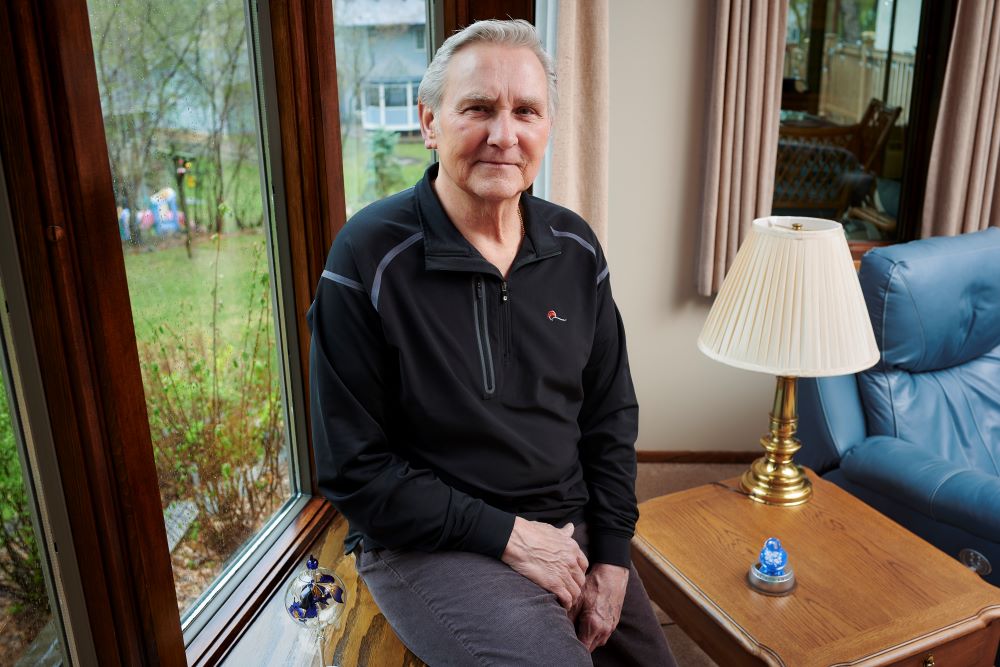Bob’s Story
Change can come at any point in life, and for Bob Greer, there have been many moments of unexpected change. Shortly after going to school for Photo-Offset Lithography, with plans to work in pre-press and color separations, Bob got married in 1965 and was then drafted into the Army in 1966.
“After basic training, I was sent to Ft. Bragg, North Carolina in a Psychological Operations Unit where I used my civilian skills in camera and press work. I was at Ft. Bragg for six months and then sent to Korea which was a good assignment and experience. I was in a topography unit and focused on map printing,” says Bob.
Upon his return to the states Bob was able to get a job in pre-press, and during his 35 years in the business worked in roles ranging from color separation to supervision and sales. Even after retirement Bob and his wife spent five years running their own business doing vehicle wraps as a way to stay busy and have fun. Now, with three kids and five grandchildren, they’re able to spend more time with family doing the things they enjoy most.
The latest big change came in 2017 when after a year of experiencing short five-second “spikes” of confusion, which included forgetting where he was, Bob was diagnosed with epilepsy at age 73. The year leading up to his diagnosis involved many auras and what would later be identified as right subtemporal epileptiform discharges. Even though he explained these weird feelings to his doctor they were unable to find the cause, meaning the undiagnosed seizures continued. It wasn’t until Bob’s wife saw one of these seizures that he was told to see a neurologist for testing.
“I tell this story because the diagnosis was difficult to determine and I was dealing with an illness I knew nothing about. I contacted the Minneapolis VA and found out they are one of 16 Epilepsy Centers of Excellence in the US. They conducted an EEG test (3.5 hours) and gave me a packet of materials explaining everything you would ask about epilepsy. They also suggested I contact the Epilepsy Foundation of Minnesota (EFMN) for connect group support,” says Bob.
After contacting EFMN and using the Information Services resource Bob got information on driving and upcoming Connect Groups. Now a year after his diagnosis, Bob attends the monthly St. Paul Connect Groups and takes his medication faithfully while trying to identify and reduce his seizure triggers.
“I use EFMN Connect Groups to learn what medications others are using and possible side effects. You also hear group members’ stories about their challenges living with epilepsy. I enjoy the meetings because everyone is open about their condition and how they deal with it. My advice for someone newly diagnosed is to join their local Connect Group. You can bare your soul and it’s done in a setting that stays in that room. Your information and story are safe,” says Bob.
